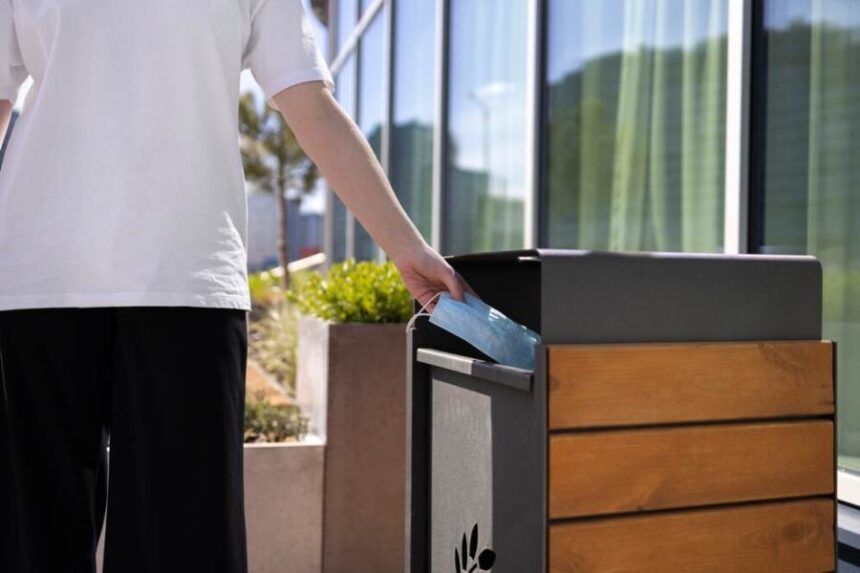Trash bins don’t exactly top the list of things we want to clean. But ignoring them? That’s how bad smells creep in. Worse, it’s how germs spread.
And here’s the kicker: it doesn’t take much effort to keep them clean and fresh. With the right habits, your bins can smell like nothing at all—and that’s a win.
From everyday tips to deep-cleaning hacks, this guide will show you how to make odors disappear and keep things hygienic. Oh, and if you’re using Simplehuman trash bags, you’re already a step ahead. Their durability helps reduce leaks—which is half the battle.
Let’s get into it.
The Hidden Risks of a Dirty Bin
Dirty bins aren’t just gross. They’re a health hazard.
Why? Because moist, rotting waste is the perfect breeding ground for bacteria, flies, and maggots. That awful stench? It’s not just annoying. It’s often a sign of harmful microbes at work.
And don’t forget pests. Rats and raccoons are always on the hunt for smelly leftovers.
Bottom line? If your bin stinks, it’s already time to act.
Common Causes of Bin Odor
Food Waste
Leftovers. Expired produce. Spills. It all rots fast, especially in warm weather. And when it breaks down, it releases strong, unpleasant gases. Fruit peels, vegetable scraps, and dairy products can ferment quickly, creating a stench that spreads fast.
Even a single banana peel can kick off the rot. And if you toss meat or fish scraps? Things get nasty even faster. These items don’t just smell bad—they attract bugs and bacteria.
Liquid Leaks
Dripping sauces, soggy containers, or leaky meat packages soak into the bin’s base. The smell? It lingers for days, even weeks. Moisture creates the perfect environment for bacteria to multiply. Plus, wet waste makes your liner more likely to tear.
Once those liquids settle at the bottom, they’re tough to remove. And they’ll stink up the entire area every time you open the lid.
Not Using Liners Properly
Throwing trash straight into the bin without a liner? That’s a recipe for disaster. Even thin liners tear easily. If you’re stuffing the bin past its limit or using off-brand bags that rip under pressure, expect a mess.
Using durable, fitted liners helps prevent that. They stay in place, resist punctures, and trap liquids before they seep through.
Infrequent Cleaning
If your bin hasn’t had a proper wash since last season, it’s going to smell. Period. Just like dishes or clothes, bins need regular maintenance. And outdoor bins? They get hit with heat, bugs, and the occasional critter.
Ignoring your bin for too long lets bacteria settle in and multiply. That leads to persistent odors that won’t go away without serious scrubbing.
The Golden Rules of Keeping Bins Clean
Want to keep odors away without scrubbing every week? These rules are your new best friend. They’re simple to follow and make a huge difference.
1. Always Use a Liner
It creates a barrier between the trash and the bin. No liner? Expect stickiness and smells. Liners catch food waste, absorb minor leaks, and make taking out the trash way less gross.
Choose liners that match your bin size and are strong enough to hold wet and heavy trash. Reinforced bags, especially with drawstring tops, make disposal faster and cleaner.
2. Tie the Bag Tightly
Loose knots let the odor out. Worse, they let bugs in. A tightly sealed bag keeps everything contained, including smells.
Make it a habit to twist and tie off the top before removing the bag. Better yet, double-knot or twist-tie when throwing out smelly trash like seafood, diapers, or meat.
3. Double Bag Smelly Waste
Things like diapers, seafood shells, and spoiled food? Wrap them up tight. Use a second bag if needed. This adds an extra layer of defense.
For high-odor items, sealing them in smaller grocery bags or produce bags before tossing them in your main liner helps reduce the stench. It also stops leaks before they start.
4. Take Out the Trash Regularly
Don’t wait until it’s overflowing. Take it out before it starts stinking. Even if the bin isn’t full yet.
Waiting too long lets food waste decompose. That speeds up bacteria growth and makes your next clean-up harder. In summer, trash should go out more often—every two to three days.
5. Keep the Lid Closed
Open bins are an invitation for flies. Always keep the lid shut tight, especially outdoors.
Lids help control odor and limit exposure to air, which slows down the rot. Some bins even come with latch locks to keep animals out and smells in.
Deep Cleaning Your Bin: Step-by-Step Guide
Sometimes, you need to go beyond the basics. Here’s how to give your bin a proper clean:
- Empty It Out: Remove the bag and any loose debris stuck inside. Shake it out over another trash bag if needed.
- Hose It Down: Use a garden hose or shower head. Blast away the gunk. Don’t skip this—water pressure loosens dried-up food and grease.
- Scrub with Soap: Use dish soap or a vinegar-and-baking soda mix. Scrub all sides and the bottom. A stiff brush works best. Pay special attention to corners and lid hinges.
- Disinfect: Spray with disinfectant. Let it sit for 10 minutes. Rinse well. Bleach diluted with water also works, especially if your bin had meat juices or mold.
- Dry Completely: Let it air-dry in the sun. Sunlight helps kill lingering bacteria. If drying indoors, wipe down with a towel to prevent damp smells later.
Deep cleaning not only removes odor but resets the bin entirely—it’s like giving your trash can a reboot.
How Often Should You Clean? (Hint: It’s Not Once a Month)
Aim for every two weeks. Weekly, if your bin handles food waste.
Outdoors in summer? Clean it every week. Bacteria love heat. And bugs? They’ll find your bin fast if it smells even a little off.
Inside bins used for tissues, packaging, or dry trash can be cleaned less often. But once a month should still be your minimum.
How to Prevent Odors from Returning
Cleaning is half the job. Keeping things fresh long-term takes a few extra tricks.
- Sprinkle baking soda on the bottom before adding a bag
- Drop a dryer sheet inside the liner for a light, fresh scent
- Use activated charcoal filters under the lid
- Store bins in shaded areas to prevent heat buildup
- Empty food containers before tossing them to reduce wet waste
Bonus: Freeze extra-smelly items like shrimp tails or meat scraps until trash day.
Clean Bin, Clean Mind
A clean bin is easy to ignore. And that’s the point.
You don’t want to think about it every time you open the lid. You want no smell. No sticky surprises. No bugs.
And with just a few easy habits, you can have exactly that.
So next time you toss something out, remember: a little bin love goes a long way.
Fresh bins. Fresher air. Happier home.




